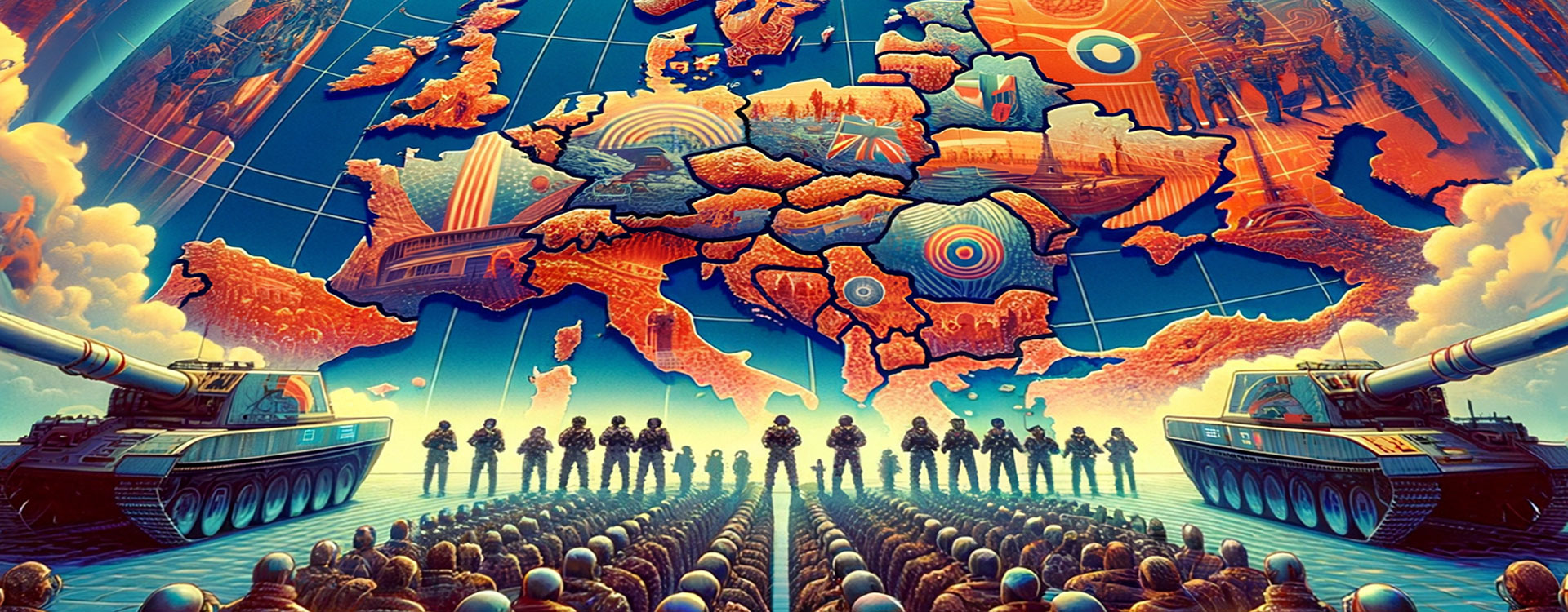The possibility of a third world war, while unimaginable for many, is a scenario that governments and individuals should take seriously. As tensions rise in various parts of the world, preparedness becomes crucial for ensuring both personal and communal safety. Unlike any conflict humanity has faced before, the next global war could see unprecedented use of advanced technologies, nuclear arms, and cyber warfare. Therefore, preparation isn’t just about physical supplies but also knowledge, skills, and mental readiness. Below is a comprehensive guide on how to prepare for such a catastrophic event.

Securing a Safe Shelter
One of the most critical aspects of surviving a global conflict is securing a safe place to live, especially in the event of airstrikes, nuclear attacks, or civil unrest.
Underground Bunkers
While many think of bunkers as relics of the Cold War, their importance cannot be overstated. In the case of nuclear or chemical warfare, an underground bunker can shield you from radioactive fallout or toxic substances. Ideally, this bunker should be stocked with provisions to last several months, given the uncertain timeline of modern warfare.
Reinforcing Existing Structures
For those unable to invest in a full bunker, reinforcing your existing home is another option. Strengthening doors and windows, using sandbags, or creating a reinforced safe room can offer protection. These measures can shield you from conventional bombings or looting, which tend to accompany wartime conditions. The key is to create multiple layers of defense.
Stockpiling Essential Supplies
War disrupts supply chains, and access to food, water, and medicine can become extremely limited. Having a well-thought-out stockpile is essential.
Non-Perishable Food and Water
A rule of thumb for wartime preparation is to stock at least three months’ worth of non-perishable food and clean water. Consider items that have long shelf lives, such as canned goods, freeze-dried meals, and grains like rice and lentils. Water storage should be a priority; storing bottled water or using water purification systems is advisable to ensure you won’t run out of drinkable water.
Medical Supplies
Wartime injuries and illness are inevitable, especially when medical infrastructures are overwhelmed. Prepare a comprehensive first-aid kit that includes antiseptics, bandages, prescription medications, pain relievers, and antibiotics if possible. Having a basic knowledge of first aid and trauma care will also be invaluable during such a time.
Communication and Information Access
Staying informed during war is a matter of survival. Knowing where the conflict is heading, where safe zones are, and what the authorities are advising can be the difference between life and death.
Battery-Powered Radios
In a war situation, power grids can fail, and the internet may not be accessible. A battery-powered or hand-crank radio is essential for receiving government broadcasts or emergency alerts. Radios tuned to shortwave frequencies can pick up international news, providing a broader picture of the situation.
Offline Maps and Evacuation Plans
Another overlooked aspect of wartime preparation is navigation. In the event that you need to evacuate, GPS systems may no longer be functional. Having physical, offline maps of your region, along with pre-determined evacuation routes, ensures that you won’t be left scrambling for directions in a critical moment.
Learning Self-Sufficiency Skills
In prolonged conflicts, self-sufficiency becomes paramount. The ability to provide for your own food, security, and medical needs will be crucial for long-term survival.
Gardening and Foraging
Learning how to grow your own food or forage for edible plants can be a vital skill. Many people may be forced to live off the land, especially if the war drags on for years. Understanding local plant life and which crops grow quickly in your climate will make a significant difference.
Self-Defense and Security
Personal safety is always at risk during a conflict. Civil unrest, looting, and violence are common byproducts of war. Basic self-defense training, along with having a method of protecting yourself (such as non-lethal deterrents like pepper spray or more serious tools like firearms), can help in warding off threats. However, responsible usage and understanding the legalities of such measures in your country are imperative.
Mental and Emotional Preparedness
War is not only physically taxing but also emotionally devastating. Preparing your mind is just as critical as preparing your home.
Building Mental Resilience
Stress, fear, and uncertainty are constant companions in war. Developing mental resilience through practices like meditation, breathing techniques, or mindfulness can help maintain clarity in the face of panic. Emotional resilience will not only allow you to make better decisions but also help those around you stay calm.
Family and Community Bonds
Isolation can exacerbate the psychological toll of war. Ensure that you have strong relationships with family, friends, or neighbors. Communities that work together to pool resources and skills tend to fare better during conflicts. Establishing a mutual support network will allow for shared knowledge, shared responsibilities, and an increased sense of security.
Financial Preparations
The economic consequences of war can be devastating, with hyperinflation, currency collapse, and scarcity of goods becoming common. Preparing your finances is just as important as any other survival measure.
Diversifying Assets
Consider keeping some assets in forms that aren’t as vulnerable to inflation or market crashes, such as precious metals or foreign currencies. In the event that local banking systems collapse, having physical cash on hand—especially in a stable foreign currency—may be a lifeline.
Bartering Goods
If the economy collapses, bartering might become the primary means of trade. Stockpile items that could be valuable for trading, such as alcohol, tobacco, batteries, and hygiene products. These items can hold significant worth when conventional money loses its value.
As we face an increasingly unstable global landscape, the need to prepare for World War III becomes less far-fetched and more of a prudent course of action. By securing a safe shelter, stockpiling essential supplies, staying informed, learning critical skills, and mentally bracing for impact, you increase your chances of surviving—and thriving—in the most unimaginable circumstances. Preparedness isn’t just about fear; it’s about foresight.